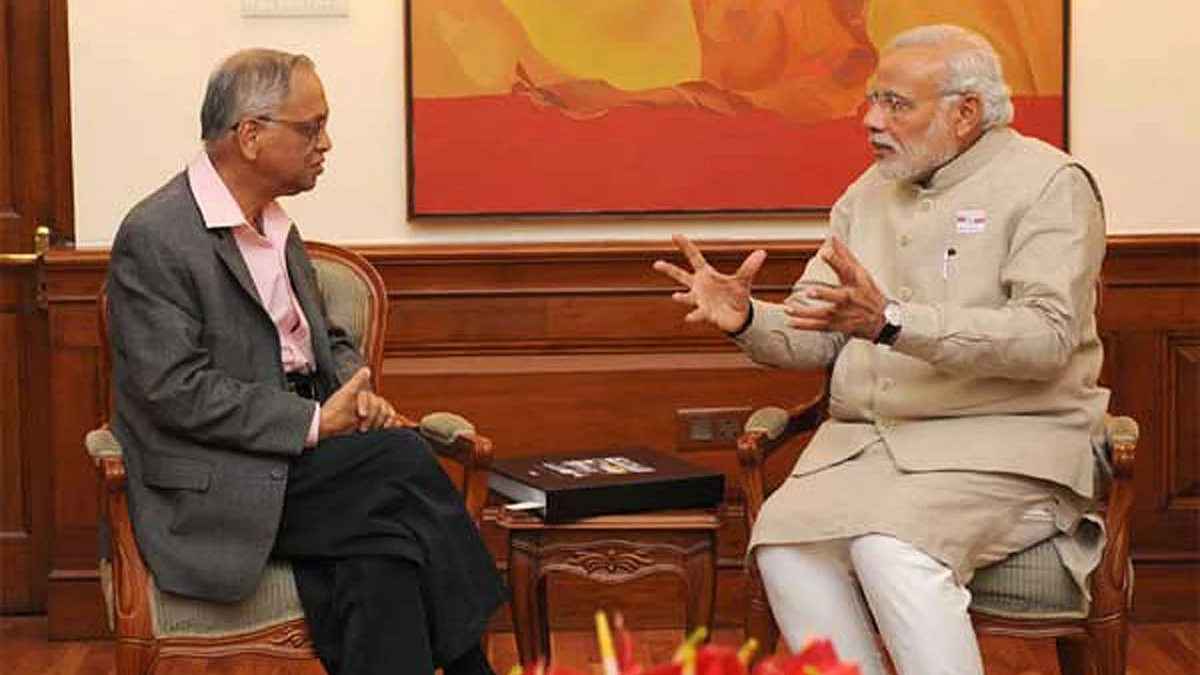‘Controlling Mindset’ Still Hampering Reforms: Narayana Murthy
Narayana Murthy says there is a long road ahead to ease of doing business in India, thanks to a “controlling mindset”

advertisement
Infosys founder Narayana Murthy tells Sagarika Ghose that Make in India, Start Up India are good ideas but change takes time in India, in an interview published in The Times of India. India’s original startup entrepreneur says there is a long road ahead to ease of doing business in India, still crippled by what he calls a “controlling mindset”.
Reforms, Slowly but Surely?
In a reference to the long-awaited Goods & Services Tax (GST) Bill that’s pending approval in the Rajya Sabha, Murthy said reforms in India are invariably a slow process because of the distribution of power between the Centre and states and the consequent need to get all stakeholders on board before pushing through with reforms.
Murthy, in particular, is enthused by the government’s recent announcement that startups will not pay taxes for the first three years, as part of the Startup India Scheme.
Need to Shift From Control to Regulation
On the role of the government, Narayana Murthy advocates a shift from the “current method of control to a different method of regulation.” While conceding that a lot of progress has been made in making it easier for businesses to grow, Murthy says there is more to be done. To substantiate this, he cites the example of the Foreign Contribution Regulation (FCRA) Act.
Lesson From China: Focus on Low-Tech Jobs
The Infosys founder is relatively sanguine on the 7-7.5 percent growth in India but says that unemployment is a big area of concern. He advocates low-tech manufacturing as one area which could create enough jobs, especially for the not-so-well-educated. In this, he provides the China example.
Budget Must Focus on Controlling Deficit
As a last word, Murthy mirrors the stance taken by RBI governor, namely, the need to control spending.
(At The Quint, we question everything. Play an active role in shaping our journalism by becoming a member today.)